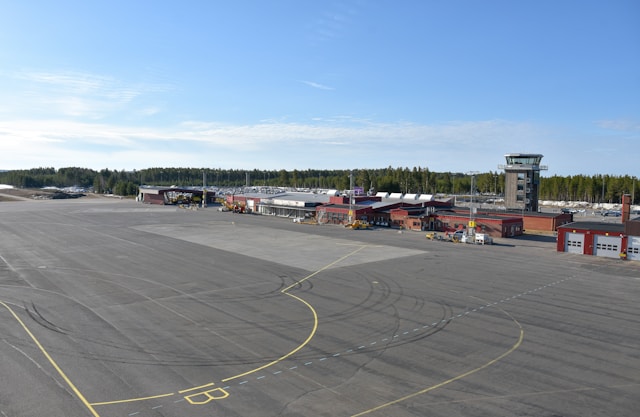Sweden axes air travel tax despite criticism

STOCKHOLM — Sweden’s right-wing government said Tuesday it would abolish a tax on flights for travelers, citing a need to promote domestic air travel, in a move hotly criticized by environmental groups.
The tax — the amount of which has been determined by the length of the flight — was introduced by the previous left-wing government in 2018 as a deterrent intended to reduce the climate effects caused by airline flights.
“If we want to protect the ability to have good flight connections within Sweden, and Sweden as an international hub… we must ensure that we do not discriminate against the competitive advantage that Sweden can have,” Prime Minister Ulf Kristersson told a press conference.
“This is in line with both long-term climate policy… and safeguarding our elongated country’s travel opportunities,” Kristersson added.
Speaking alongside Kristersson, Energy Minister Ebba Busch stressed that a “minority of countries within the EU had a flight tax.”
The coalition government, propped up by the far-right Sweden Democrats, have previously mulled halving the tax.
But Tuesday they said the tax would instead be axed completely as of July 1, 2025.
Environmental groups had warned that scrapping the tax would lead to increased flight travel and emissions.
“It’s completely upside down and the government is giving up completely on climate policy,” Daniel Kihlberg, climate director at the Swedish Society for Nature Conservation, told newspaper Aftonbladet following the announcement.
The government’s climate policy has already faced scrutiny in the past.
In March, the Swedish Climate Policy Council — an expert panel tasked with reviewing government policy — said that measures such as a reduced fuel tax put climate ambitions at risk, and lamented a lack of concrete measures in the government’s environmental policy.
The council said in a report that the government’s policy would “increase emissions and does not lead towards the fulfillment of Sweden’s climate goals and EU commitments by 2030”.
Global aviation is responsible for around 2.5 percent of global carbon emissions, more than the annual carbon footprint of Brazil and France combined.
AFP is one of the world's three major news agencies, and the only European one. Its mission is to provide rapid, comprehensive, impartial and verified coverage of the news and issues that shape our daily lives.

















